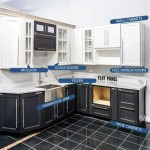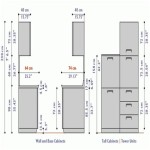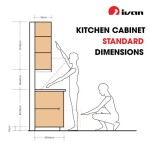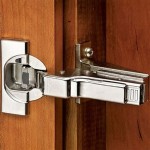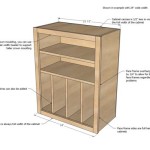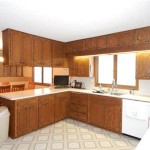Kitchen Cabinet Primers: Essential Aspects
Kitchen cabinet primers are a foundation layer applied to kitchen cabinets before painting or staining. They play a crucial role in ensuring the longevity, adhesion, and aesthetics of your cabinetry. Understanding the various aspects of kitchen cabinet primers will help you make informed decisions and achieve the desired outcome for your kitchen makeover.
Types of Kitchen Cabinet Primers
- Water-Based Primers: Offer low odor, easy cleanup, and quick drying time. However, they may require multiple coats for optimal coverage.
- Oil-Based Primers: Provide excellent adhesion and durability. They have a strong odor and require longer drying time.
- Shellac-Based Primers: Known for their superior adhesion, resistance to tannins, and quick drying time. They can be more expensive than other primers.
- Alkyd Primers: Combine the benefits of oil-based and water-based primers, offering good adhesion, durability, and a faster drying time.
Choosing the Right Primer
Consider the following factors when selecting a kitchen cabinet primer:
- Substrate: Match the primer to the type of surface you're priming, such as wood, laminate, or metal.
- Condition of the Surface: Primers can address specific issues like stains, grease, or previous paint or stain. Choose a primer designed for the condition of your cabinets.
- Coverage and Wear Resistance: Determine the necessary coverage and durability for your cabinets based on usage and aesthetics.
- Drying Time: Consider the amount of time you can allot for the primer to dry before proceeding with painting or staining.
Applying Kitchen Cabinet Primer
Follow these steps for effective primer application:
- Clean and Prepare Surfaces: Remove dirt, grease, and loose paint. Sand lightly if needed.
- Protect Hardware: Remove or cover hardware to prevent primer buildup.
- Apply Primer: Use a brush or sprayer to apply thin, even coats of primer. Allow each coat to dry thoroughly before applying the next.
- Sand Lightly: Once the primer is dry, lightly sand to smooth any raised fibers or imperfections.
- Enhances Paint Adhesion: Provides a smooth, stable base for paint to adhere, improving the overall finish.
- Blocks Stains: Prevents stains from penetrating the wood or laminate, maintaining the appearance of your cabinets.
- Protects from Moisture: Forms a protective barrier against moisture, preventing warping, swelling, or cracking of the cabinets.
- Promotes Longevity: Extends the lifespan of your cabinets by protecting them from everyday wear and tear.
- Provides a Uniform Finish: Evens out color variations in the wood or laminate, resulting in a consistent and professional-looking finish.
Benefits of Priming Kitchen Cabinets
Conclusion
Kitchen cabinet primers play a vital role in the success of your kitchen cabinet makeover. Choosing the right primer for your specific needs and applying it correctly will ensure the durability, adhesion, and aesthetics of your finished cabinetry. By understanding the essential aspects of kitchen cabinet primers, you can confidently tackle this important step in your kitchen renovation project.
What Is The Best Primer To Use When Painting Kitchen Cabinets Quora

1 Best Primer For Kitchen Cabinets Guranteed To Stick

How To Paint Kitchen Cabinets A Step By Guide Confessions Of Serial Do It Yourselfer

Top Primers For Kitchen Projects The Perfect Finish Blog By Kilz

Refinish Kitchen Cabinets With Kilz Restoration Primer

How To Prime Cabinets For A Smooth Finish The Turquoise Home

How To Prime Cabinets For A Smooth Finish The Turquoise Home
Best Primers Paints For Cabinets Furniture Fireplaces The Striped House

1 Best Primer For Kitchen Cabinets Guranteed To Stick

How To Prime Cabinets For A Smooth Finish The Turquoise Home
Related Posts


